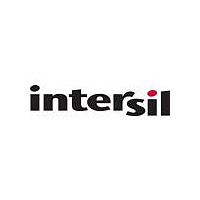ISL65426EVAL1Z Intersil, ISL65426EVAL1Z Datasheet - Page 18

ISL65426EVAL1Z
Manufacturer Part Number
ISL65426EVAL1Z
Description
ISL65426 EVAL BOARD 1 - RoHS COMPLIANT - QFN
Manufacturer
Intersil
Datasheet
1.ISL65426EVAL1Z.pdf
(22 pages)
load device. Individual power good indicators provide
options for linking to external system monitors.
Undervoltage Protection
Separate hysteretic comparators monitor the feedback pin
(FB) of each converter channel. The feedback voltage is
compared to a set undervoltage (UV) threshold based on the
output voltage selected. Once one of the comparators trip,
indicating a valid UV condition, a 4-bit UV counter
increments. If both channel comparators detect an UV
condition during the same switching cycle, the 4-bit counter
increments twice. Once the 4-bit counter overflows, the UV
protection logic shuts down both regulators.
The comparator is reset if the feedback voltage rises back
up above the UV threshold plus a specified amount of
hysteresis outlined in the Electrical Specification Table. If
both converter channels experience an UV condition and
one rises back within regulation, then the counter continues
to progress toward overflow.
Overvoltage Response
If the output voltage exceeds the overvoltage (OV) level for
the power good signal, the controller will fight this condition
by actively trying to regulate the output voltage back down to
the reference level. This method of fighting the rise in output
voltage is limited by the reverse current capability of the total
number of power blocks associated with the output. The
approximate reverse current capability of each power block
is 0.5A. The power good signal will drop indicating the output
voltage is out of specification. This signal will not transition
high again until the output voltage has dropped below the
falling PGOOD OV threshold.
Overcurrent Protection
A pilot device is integrated into the upper device structure of
each master power block. The pilot device samples current
through the master power block upper device each cycle.
This Channel current feedback is scaled based on the state
of the ISET1 and ISET2 pins. The Channel current
information is compared to an overcurrent (OC) limit based
on the power block configuration. Each 1A power block tied
to the master power block increases the OC limit by 2A. For
example, if both masters have two slaves associated with
each of them then the OC limit for each output is 6A for a 3A
configuration.
If the sampled current exceeds the OC threshold, a 4-bit OC
up/down counter increments by one LSB. If the sampled
current falls below the OC threshold before the counter
overflows, the counter is reset. If both regulators experience
an OC event during the same cycle, the counter increments
twice. Once the OC counter reaches 1111, both channels are
shutdown. If both channels fall below the over-current limit
during the same cycle, the OC counter is reset.
Once in shutdown, the controller enters a delay interval,
equivalent to the SS interval, allowing the die to cool. The
OC counter is reset entering the delay interval. The
protection logic initiates a normal SS internal once the delay
interval ends. If the outputs both successfully soft-start, the
power good signal goes high and normal operation
18
ISL65426
continues. If OC conditions continue to exist during the SS
interval, the OC counter must overflow before the controller
shutdowns both outputs again. This hiccup mode continues
indefinitely until both outputs soft-start successfully.
Thermal Monitor
Thermal-overload protection limits total power dissipation in
the ISL65426. An internal thermal sensor monitors die
temperature continuously. If controller junction temperature
exceeds +150
circuitry to shutdown both channels and latch-off. The POR
latch is reset by cycling VCC to the controller.
Component Selection Guide
This design guide is intended to provide a high-level
explanation of the steps necessary to create a power
converter. It is assumed the reader is familiar with many of
the basic skills and techniques referenced below. In addition
to this guide, Intersil provides a complete reference design
that includes schematic, bill of material, and example board
layout.
Output Filter Design
The output inductor and the output capacitor bank together
form a low-pass filter responsible for smoothing the pulsating
voltage at the phase node. The output filter also must
provide the transient energy until the regulator can respond.
Because it has a low bandwidth compared to the switching
frequency, the output filter limits the system transient
response. The output capacitors must supply or sink load
current while the current in the output inductors increases or
decreases to meet the demand. The output filter is usually
the most costly part of the circuit. Output filter design begins
with minimizing the cost of these components.
OUTPUT CAPACITOR SELECTION
The critical load parameters in choosing the output
capacitors are the maximum size of the load step (ΔI), the
load-current slew rate (di/dt), and the maximum allowable
output voltage deviation under transient loading (ΔV
Capacitors are characterized according to their capacitance,
ESR (Equivalent Series Resistance), and ESL (Equivalent
Series Inductance).
At the beginning of the load transient, the output capacitors
supply all of the transient current. The output voltage will
initially deviate by an amount approximated by the voltage
drop across the ESL. As the load current increases, the
voltage drop across the ESR increases linearly until the load
current reaches its final value. The capacitors selected must
have sufficiently low ESL and ESR so that the total output
voltage deviation is less than the allowable maximum.
Neglecting the contribution of inductor current and regulator
°C
, the thermal monitor commands the POR
November 14, 2006
MAX
FN6340.1
).











